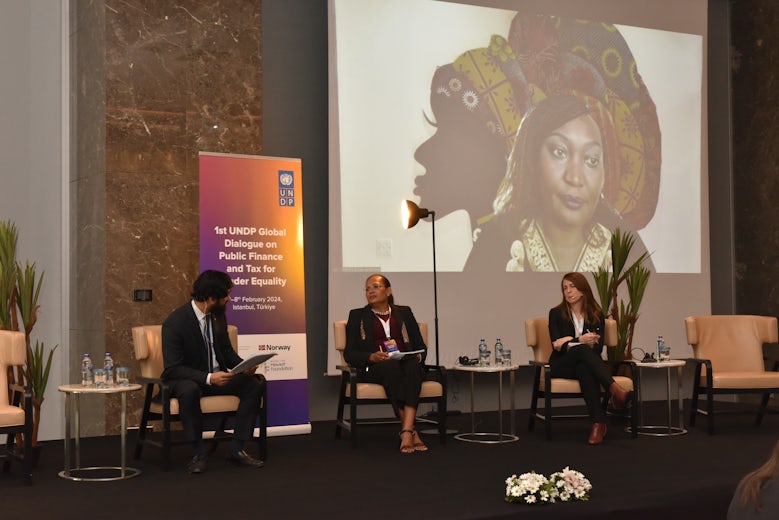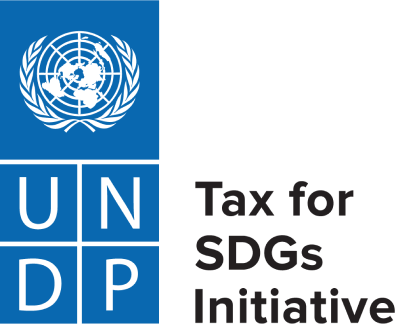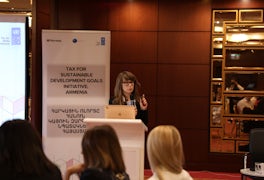Centring gender equality in tax systems and fiscal policy
The growing awareness of inequality and the slow progress towards change in the world makes gender equality a critical checkpoint and focus for ensuring a more equitable and inclusive world. As the world celebrates International Women’s Day 2024 and honours women’s achievements in the socio-economic, cultural, and political realms, at the UNDP it is a call to action to accelerate women’s equality, we continue to strive to uphold this year’s theme to “Invest in Women: Accelerate Progress'” through our tax and fiscal systems!
We work with governments to reimagine inclusive tax systems and to foster change through gender responsive tax and fiscal reforms. We seek to address challenges that impede progress, from gender biases and discrimination found within tax laws and practices, lack of systematic gender impact analyses of tax and fiscal policies, lack of reliable and accessible gender disaggregated data, to low inclusion of the agency and voice of women in tax administration and tax negotiations at domestic and international levels.
Governments must act now. The urgency for a just, inclusive, and equitable transition in response to the multidimensional crises that the world is witnessing leaves no room for faltering.
The IWD is in the backdrop of the UN Commission on the Status of Women (CSW68), which will kick off on 11th March, the UNDP EQUANOMICS initiative, a collaborative effort between Sustainable Finance Hub and the Gender team work reflects and responds to the priority theme of “accelerating the achievement of gender equality and the empowerment of all women and girls by addressing poverty and strengthening institutions and financing with a gender perspective.”
Commitment to gender equality and social inclusion (GESI)
The Agenda for Sustainable Development Goals (SDGs) commits governments to take necessary measures to raise resources for gender equality and the empowerment of women and girls. This commitment is also reflected in the Convention on the Elimination of all Forms of Discrimination Against Women (CEDAW) which recognizes ‘the equal rights of men and women to enjoy all economic, social, cultural, civil, and political rights and the Beijing Declaration and Platform for Action (BPfA) which calls for the mobilization of all available resources at the national and international levels for the advancement of women and substantive equalities. However, existing tax and fiscal systems are biased against women and pose barriers to achieving the SDGs."
The Tax for SDGs Initiative and the EQUANOMICS initiative aims to support governments to create a consensus and a shared understanding of the nexus between tax policy, gender equality and the SDGs; provide capacity development and diagnostic analyses, evidence generation through innovative research methodologies, accompanying governments to implement gender responsive tax and fiscal reforms and strengthen institutional capacities.

What is the current status?
The findings from this set of interventions reveal several key insights:
- While most countries have removed explicit gender biases from their tax codes, implicit biases persist.
- Many countries employ progressive income tax regimes that benefit gender equality, evidenced by features like the lowest marginal personal income tax (PIT) rates being set above the poverty line and the exemption of basic incomes in graduated income tax rates. This is particularly beneficial for women, who often represent a majority in the low-income category.
- A significant challenge remains in the systematic collection and utilization of sex-disaggregated data and gender impact analysis to inform policymaking. Where such data exists, it is often fragmented and underutilized in shaping policy decisions.
- The representation of women in decision-making positions within tax administrations shows huge variation, with participation rates ranging from 19% to 57%. However, gender equality has not been fully integrated into the architecture and processes of critical tax institutions, such as Ministries of Finance and tax administrations. Although a few countries have established gender focal point mechanisms, these efforts fall short of ensuring comprehensive gender mainstreaming across institutions due to inadequate resources.
Reflection on UNDP interventions
The EQUANOMICS initiative is built around three key pillars: gender-responsive tax policy reforms, institutional strengthening, and aligning budgets with gender equality goals. The Tax for SDGs initiative primarily focuses on the first two pillars, and supports governments through:
- A service offer on taxation and gender equality for countries;
- Adaptation of the Gender Equality Seal for public institutions, specifically tailored for tax administrations and Ministries of Finance;
- Creation of an innovative diagnostic tool, the SDGs Taxation Framework (STF) gender equality module, which focuses on SDG 5.
- Country missions to provide capacity building, analysis, diagnostics, and incidence analysis of tax systems. These missions aim to identify gaps and formulate policy recommendations for reforms, including conducting in-depth research for gender-responsive tax policymaking.
- Facilitation of stakeholder engagement in policy dialogues
Additionally, we foster partnerships with other stakeholders, serving as an interlocutor and collaborator in a Community of Practice on tax and gender research and policy work. This enables us to coordinate with, and learn from, global activities in this area, providing a platform for exchanging ideas, knowledge, and critical reflections.
Call to action
We urge governments to use tax and fiscal policies as tools for gender equality and inclusion. By removing gender biases in tax laws and ensuring revenues support gender-transformative services and the fair distribution of domestic work, governments can make a significant impact. This approach, along with assessing the gender impact of tax reforms, empowers women and girls, moving us closer to achieving Agenda 2030's goals in a more inclusive and equitable manner.




